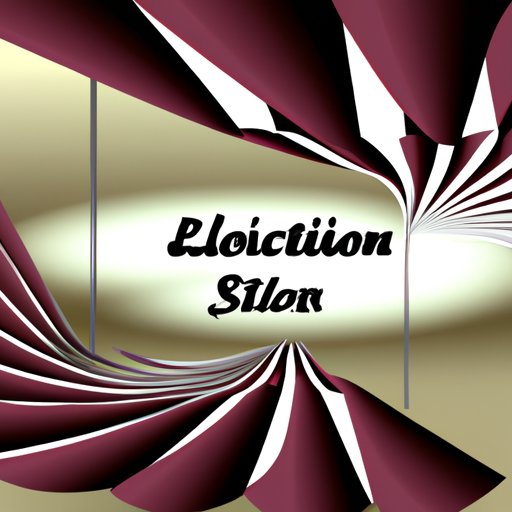Introduction
The concept of an “illusion” has been used for centuries in literature to evoke emotion, draw readers into the story, and create suspense. But what does the term “illusion” actually mean when it comes to literature? An illusion can be defined as a false belief or impression that creates an alternate reality within a story. In other words, an illusion can be used by authors to deceive their readers or alter their perceptions of the narrative.
The purpose of this article is to explore how illusions are used in literature to shape the narrative. We will analyze the role of illusions in creating suspense, examine the power of illusions in fiction, and investigate how illusions can affect character development and plot development. By the end of this article, you should have a better understanding of how illusions can be used to craft compelling stories.
Analyzing the Role of Illusions in Literature
Illusions have long been used by authors to create tension and keep readers engaged in the story. As author Stephen King explains, “Fiction is the truth inside the lie.” With this in mind, we can see how illusions can be used to craft believable stories that capture the reader’s attention.
How Illusions Create Suspense in Literature
Suspense is an essential element of any good story, and illusions can be used to create tension and keep readers guessing. For example, in Edgar Allan Poe’s classic short story “The Tell-Tale Heart,” the narrator creates an illusion by telling the reader that he is not mad. However, as the story progresses, it becomes clear that the narrator is indeed insane and has created an elaborate ruse to cover up his guilt. This use of an illusion to create suspense is a classic example of how authors can use deception to create tension in a story.
Examining the Power of Illusions in Fiction
Illusions can also be used to manipulate the reader’s perception of a story. For instance, in George Orwell’s novel 1984, the protagonist Winston Smith is presented with an illusion of freedom by the oppressive government. The government uses propaganda to convince the citizens that they are free, even though they are actually living in a totalitarian state. By using this illusion, Orwell is able to demonstrate the power of manipulation and control.
Exploring the Use of Illusions as a Literary Device
Illusions can also be used as a literary device to explore themes such as reality and truth. In Fyodor Dostoevsky’s novel Crime and Punishment, the protagonist Raskolnikov is driven to commit a murder under the illusion that he is above the law. Through this use of an illusion, Dostoevsky is able to explore the idea of morality and its implications on human behavior.

Investigating How Illusions Shape the Narrative
In addition to creating suspense and exploring themes, illusions can also be used to shape the narrative of a story. We will now look at how illusions can affect character development and plot development.
Understanding the Effects of Illusions on Character Development in Literature
Illusions can be used to shape the development of characters in literature. For example, in Charlotte Bronte’s novel Jane Eyre, the protagonist is presented with an illusion of love and security by her employer Mr. Rochester. However, as the story progresses, it becomes clear that Mr. Rochester is hiding a secret that threatens to ruin Jane’s life. Through this use of an illusion, Bronte is able to explore the nature of love and trust.
Examining How Illusions Impact Plot Development
Illusions can also be used to drive the plot forward and create unexpected twists and turns. For instance, in William Golding’s novel Lord of the Flies, the boys on the island create an illusion of order and civilization by establishing a “government” and assigning roles to each member. This illusion of order quickly unravels as the boys descend into savagery and chaos. Through this use of an illusion, Golding is able to explore the darker side of human nature.
Conclusion
In conclusion, illusions play an important role in literature by creating suspense, manipulating the reader’s perception of the story, and shaping the narrative. They can be used to explore themes such as reality and truth, and to drive the plot forward with unexpected twists and turns. Illusions can also affect character development, as they can be used to explore the nature of love and trust.
We hope that this article has given you a better understanding of what an illusion is in literature and how it can be used to craft compelling stories.
(Note: Is this article not meeting your expectations? Do you have knowledge or insights to share? Unlock new opportunities and expand your reach by joining our authors team. Click Registration to join us and share your expertise with our readers.)
